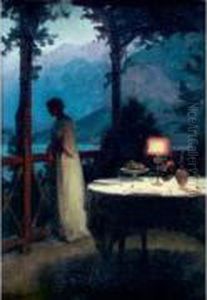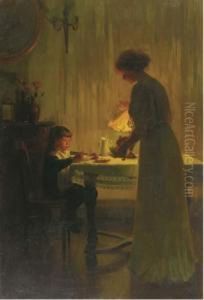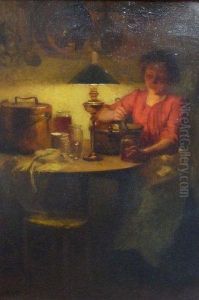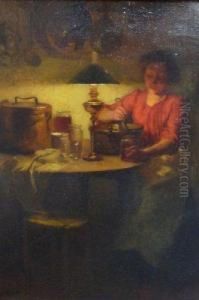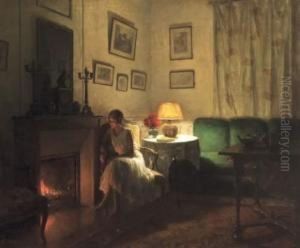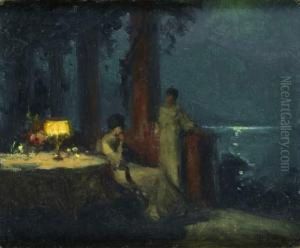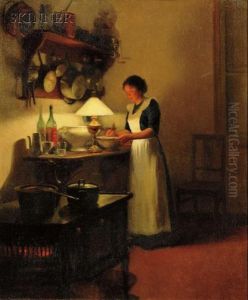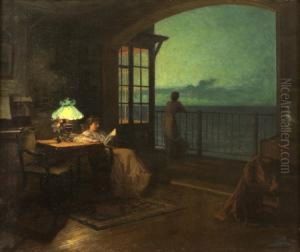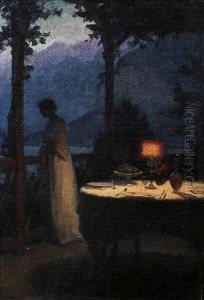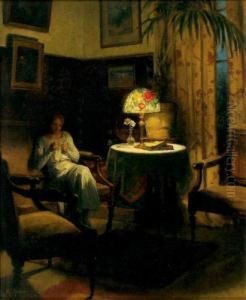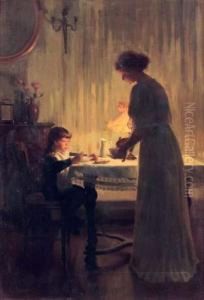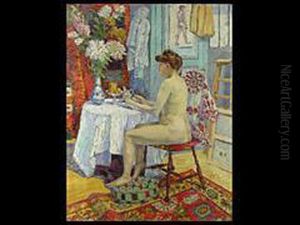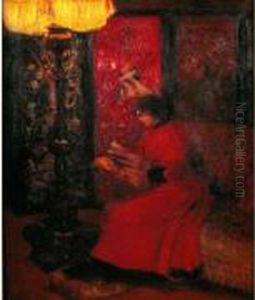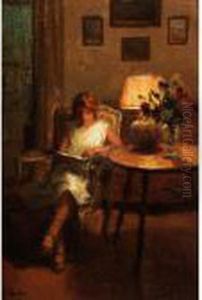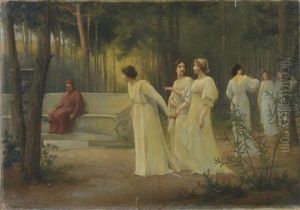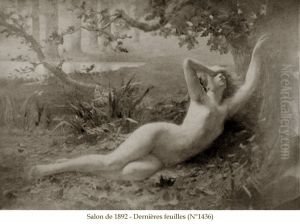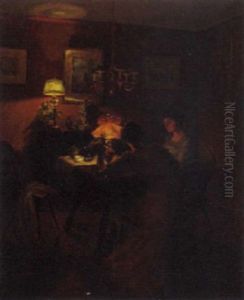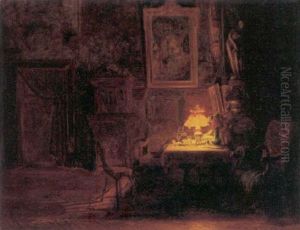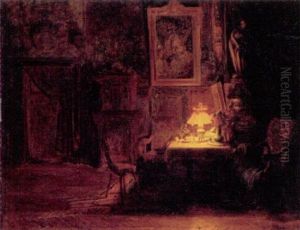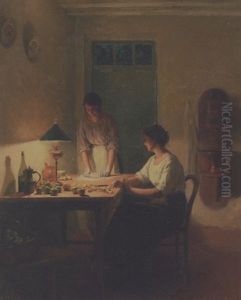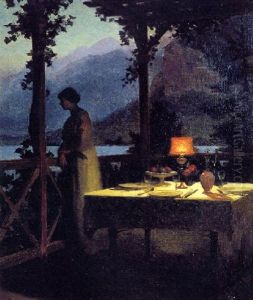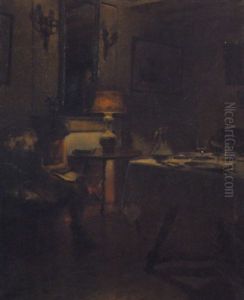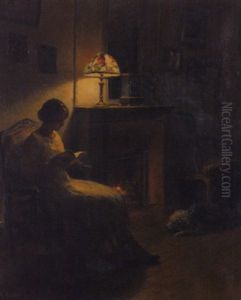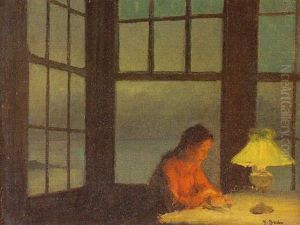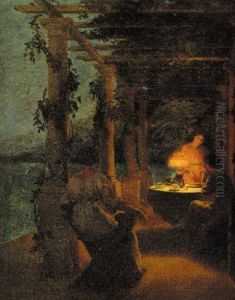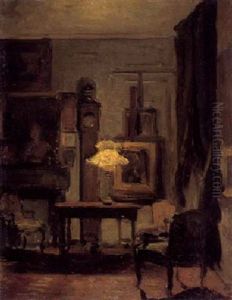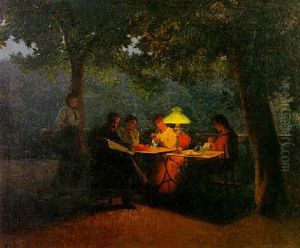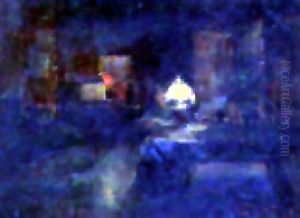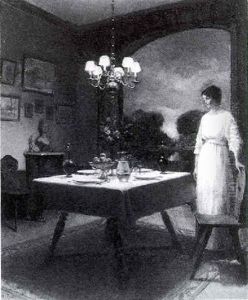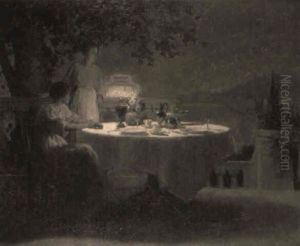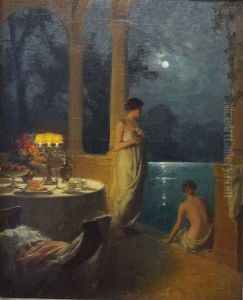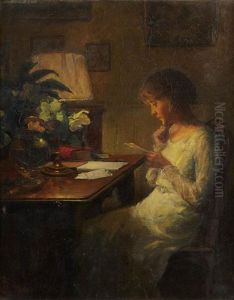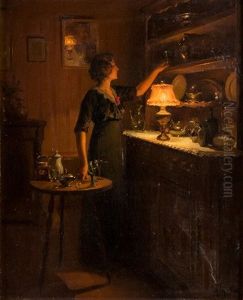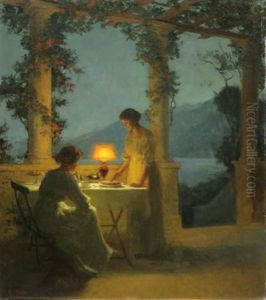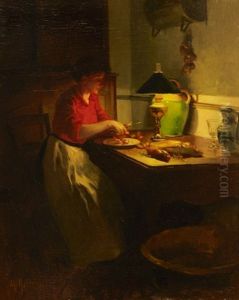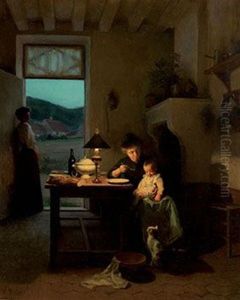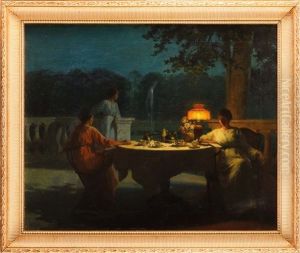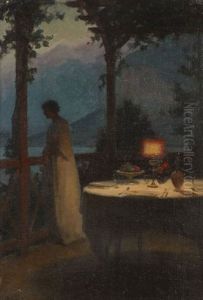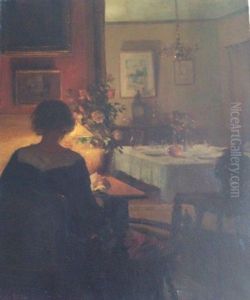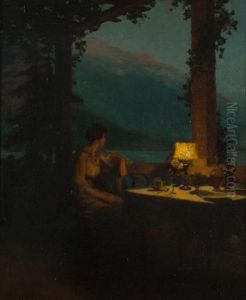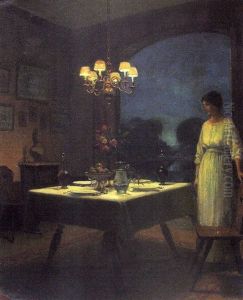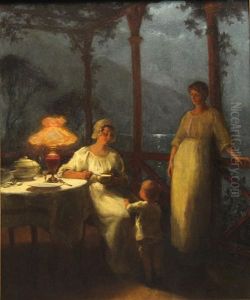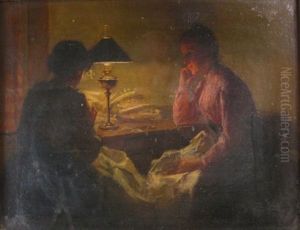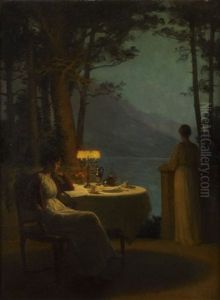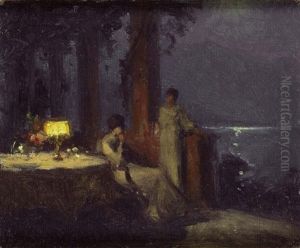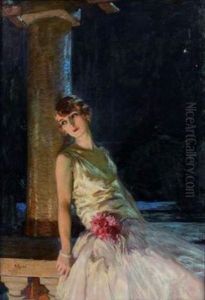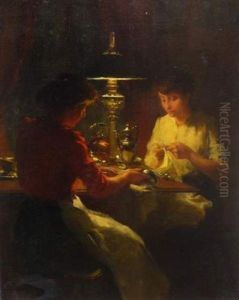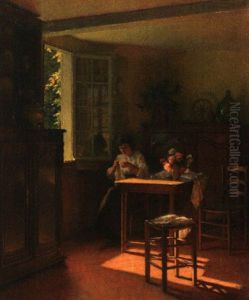Marcel Rieder Paintings
Marcel Rieder was born in Thann, Alsace, France, in 1862. His artistic journey began at the School of Fine Arts in Munich, Germany, where he honed his skills and developed a distinctive style. Rieder was primarily known for his intimate interior scenes and landscapes, which often featured soft, diffused lighting that gave his work a dreamy, ethereal quality. This unique use of light became a hallmark of his style, setting him apart from his contemporaries.
Rieder's work reflects the influence of the Impressionist movement, although he maintained a more refined and detailed approach than the typical broad brushstrokes of Impressionism. His paintings often depicted serene domestic settings, capturing moments of quiet contemplation or everyday activities with a sense of tranquility and timelessness.
Throughout his career, Marcel Rieder enjoyed moderate success and participated in various exhibitions, including the prestigious Salon in Paris. His art was appreciated for its delicate beauty and the emotional depth it conveyed, capturing the viewer's imagination and inviting them into a peaceful, idyllic world.
Despite the challenges posed by World War I and the shifting trends in the art world during his lifetime, Rieder remained dedicated to his artistic vision. His work did not gain the same level of recognition as some of his contemporaries, but it has continued to be admired for its technical skill and emotional resonance. Marcel Rieder passed away in 1942, leaving behind a legacy of art that continues to be celebrated for its quiet beauty and luminous quality.
